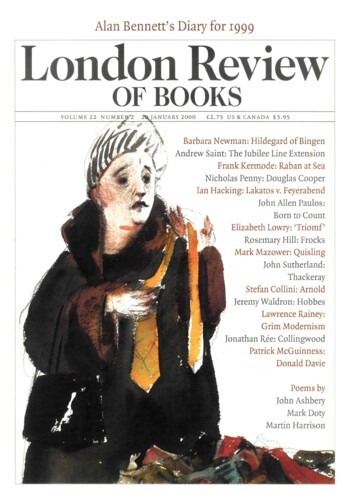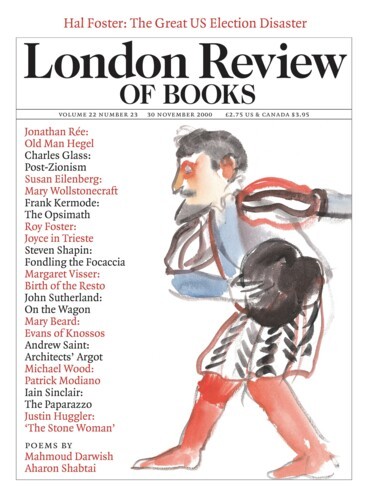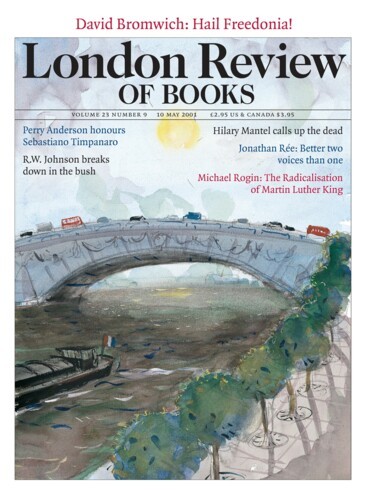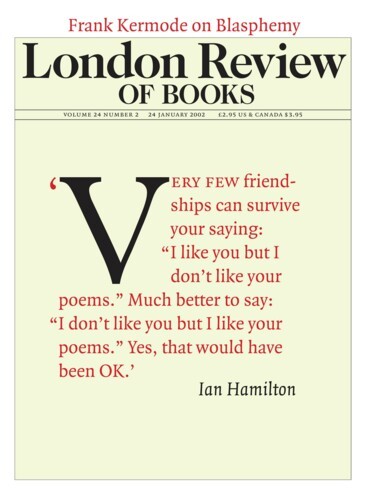Life after Life: Collingwood
Jonathan Rée, 20 January 2000
The motor vessel Aclinous left Birkenhead on 22 October 1938. It was an ordinary Dutch cargo ship making a routine journey to what was then the Dutch East Indies, and on this occasion it was also carrying a sick and lonely passenger: an experienced amateur sailor who was hoping that a sea voyage and a few months sailing around the Malay Archipelago would help restore his health and peace of mind. For as well as being trapped in ‘complicated private and professional entanglements’, as one acquaintance put it, he had recently suffered two severe strokes. The first, as he explained in a letter to a friend, deprived him of the use of his left arm and left leg, and the second took away his speech as well, though within a few months he felt able to speak again, ‘well enough for the purpose of my profession’.‘




